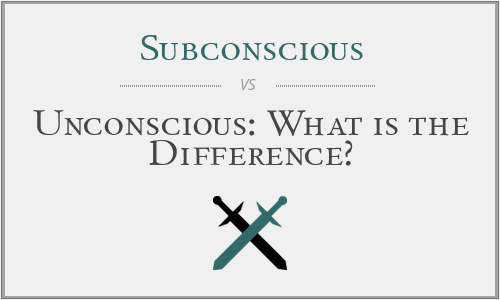
In this article:
3. I will show how they are different from one another.
The first level is the smallest, it is that piece of ice that is out of the water, on the surface, visible, able to be accessed with all the senses.
The second level of the iceberg is under the water, accessible but murky, maybe distorted by the water that surrounds it, maybe unseen.
The third level of the iceberg is the deepest layer, hidden underneath the first two levels, not easily accessible without a struggle, completely unseen
1. The conscious level of the mind
2. The subconscious level of the mind
3. The unconscious level of the mind
The conscious mind is on surface.
And the unconscious mind completely inaccessible.
What is the Conscious Level of the Mind?
We know this word – we use it all the time. We know when we are conscious and when we have lost consciousness. We can make a conscious decision and a conscious effort, and we are often consciously aware; we are self-conscious, fully conscious, class conscious, fashion conscious, and barely conscious.
This is the level of the mind where we are the most aware of ourselves and our own behavior. This is the level where our thoughts and actions are interpreted, defined, and judged.
Philosophers and scientists are hard pressed to explain the workings of the conscious mind. It is often best defined by comparing it to the subconscious and the unconscious mind.
What is the Subconscious Level of the Mind?
This is the level of the mind where our thoughts and reactions hide, accessible but located under the surface of our consciousness, just outside our focus or our awareness.
The subconscious functions as a filter to help organize and store the enormous amounts of information that we are constantly receiving through our senses.
For example:
• We notice our surroundings at a subconscious level. Consider this: We are talking on the phone and a a cat walks past. We do not focus on the cat. Later, someone asks us if we have seen this cat, and we are able to recall its color, its size, and many other details about it.
• We have behaviors that happen at a subconscious level of mind: For example, our breathing. We do not normally notice ourselves breathing, but we can alter our breathing by directing our attention to it and choosing to change it.
• We have automatic skills that are stored in our subconscious mind, like the learned ability to type, to play the piano, or to ride a bicycle. These skills were first part of our conscious mind, then we practiced them over and over until they became automatic and part of our subconscious mind.
What is the Unconscious Level of the Mind?
This is the deepest level of the mind.
This is where our memories accumulate, where our beliefs, our behavior patterns, and our subjective thoughts exist. We are not aware of these thoughts although, unbeknownst to us, they are often the covert reason driving our overt behavior.
Theories of the Unconscious Level of Mind
The term “unconscious” was first introduced in the 18th century by Friedrich Schelling, a German philosopher and was then translated into English by Samuel Tayler Coleridge.
The theory of an “unconscious level of mind” is connected to Sigmond Freud, who believed that the mind stores our most difficult, repressed memories, feelings, and thoughts.
Freud stressed that the unconscious mind contained only those memories and feelings that were repressed and hidden from conscious awareness, protecting us until such time that we could deal effectively with them.
These unconscious feelings can influence the way we behave, the way we make decisions, and can even affect our physical and mental health, in the form of phobias, panic attacks, unexplained aversions, and more.
Conclusion: Comparing the Subconscious and the Unconscious Levels of Mind
We now understand that both the subconscious level of the mind and the unconscious level of the mind exist outside of our awareness, beneath our conscious level of mind.
The subconscious can be easily summoned into our awareness, and we can decide to make a change: the unconscious is not easily available for awareness and change.
After reading this article, we are consciously aware of the differences between these words, and hopefully, we will not subconsciously confuse them in the future.




Have a discussion about this article with the community:
Report Comment
We're doing our best to make sure our content is useful, accurate and safe.
If by any chance you spot an inappropriate comment while navigating through our website please use this form to let us know, and we'll take care of it shortly.
Attachment
You need to be logged in to favorite.
Log In